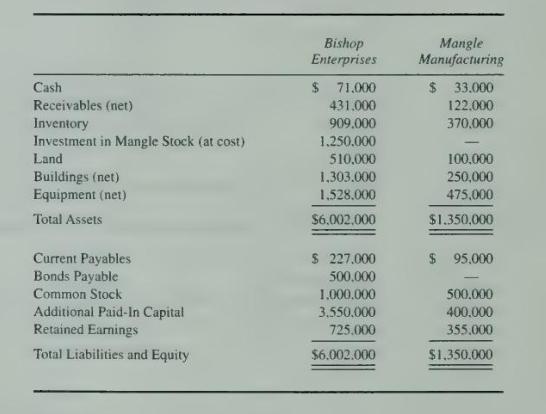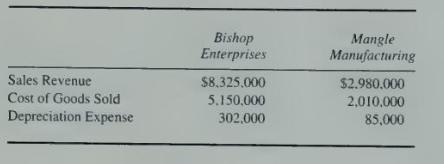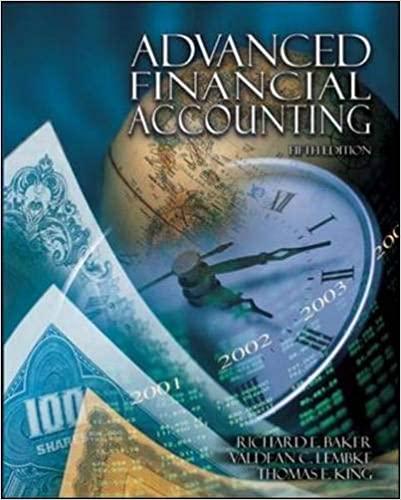Bishop Enterprises purchased 100 percent of the common shares of Mangle Manufacturing Company on January (1,20 mathrm{X}
Question:
Bishop Enterprises purchased 100 percent of the common shares of Mangle Manufacturing Company on January \(1,20 \mathrm{X} 7\), for \(\$ 1,250,000\), a price that was \(\$ 55,000\) in excess of the book value of the shares acquired. All of the excess of the cost over book value was related to goodwill except for \(\$ 25,000\) related to equipment with a five-year remaining life at the date of combination. The amount of the differential attributed to goodwill as a result of the purchase of Mangle Manufacturing shares is not amortized.
Balance sheets for the two companies as of December \(31,20 \times 7\), were as follows:

For the year 20X7, the separate income statements of Bishop and Mangle included, among other items, the following:

The only intercompany transaction during \(20 \times 7\) was a sale of inventory at the end of the year from Bishop to Mangle. Bishop originally purchased the goods for \(\$ 34,000\) and sold them to Mangle for \(\$ 45,000\) on account. All of the goods still were in Mangle's inventory at year-end, and the account had not yet been paid by Mangle.
\section*{Required}
Indicate the amount at which each of the following items would be reported in the \(20 \mathrm{X} 7\) consolidated financial statements of Bishop Enterprises and its subsidiary:
a. Cash.
b. Receivables (net).
c. Inventory.
d. Investment in Mangle Stock.
e. Equipment (net).
f. Goodwill.
g. Current Payables.
h. Common Stock (par).
i. Sales Revenue.
j. Cost of Goods Sold.
k. Depreciation Expense.
Step by Step Answer:

Advanced Financial Accounting
ISBN: 9780072444124
5th Edition
Authors: Richard E. Baker, Valdean C. Lembke, Thomas E. King





